COVER
PMS: Reps Shun Masses, Back Tinubu on N617 Price Hike

…PMS Price Hike
By Ubong Ukpong, Abuja
The House of Representatives yesterday supported Tuesday’s hike in the pump price of Premium Motor Spirit (PMS), as it rejected all entreaties to prevent the Federal Government from implementing the new price regime of N617 per litre by voting overwhelmingly in favour of the increase, citing market forces as determinant.
The Green Chamber rejected an amendment motion moved by Rep.
Yampa Zakaria (PDP-Adamawa) asking it to order a suspension of the price increase.Zakaria had argued that the price hike suspension would enable the House to invite the Chief Executive Officer of Nigeria National Petroleum Company Limited, (NNPCL), Mr Kyari Mele, to appear before it to explain the said increase.
Rep. Shettima Ali (APC-Yobe) seconded Zakaria’s motion, urging that the price hike be reverted pending the appearance of Kyari before the House, but the amendment was rejected.
The amendment sought was based on a motion moved earlier by Rep. Ikenga Ugochinyere (PDP-Imo).
Ugochinyere had noted that Nigerians woke on July 18 to find to their chagrin that petrol price had been increased from N537 a litre to N617 a litre.
He urged the House to constitute an ad-hoc committee to look into the incessant increases in pump prices of petrol by the Nigeria National Petroleum Company Ltd. (NNPCL).
He noted that the price increases had affected transportation and prices of foodstuffs, leaving many Nigerians helpless.
Contributing to debate on the motion, the Deputy Speaker, Rep. Benjamin Kalu, who presided over the plenary, conceded that the motion was prompt.
He, however, defended the move by the NNPCL, arguing that market forces were the factors at play since the removal of fuel subsidy.
Rep. Amobi Ogah (LP-Abia) in his contribution also conceded that market forces determined the price hike.
When the speaker put the amendment motion to a voice vote, members rejected the proposed reversal and ruled in favour of N617 per litre of petrol.
The House also summoned Kyari and his team to explain to the House the rationale behind the increase.
The lawmakers also set up an ad-hoc committee with members drawn from the six geopolitical zones of the country to determine the rationale behind the increase.
Probe 13- Year Remittances to NHF
The House of Representatives yesterday resolved to investigate the non–remittance to the National Housing Fund (NHF) and utilization of the fund from 2011 to date.
This followed the adoption of a motion titled ‘Need to Investigate the Non–Remittance to the National Housing Fund and Utilization of the Fund from 2011 to date’ sponsored at the plenary by Hon. Zakaria Dauda Nyampa.
While adopting the motion, the House resolved to set up an ad-hoc to carry out the investigation and report back for further legislative action.
Presenting the motion, the Lawmaker said “The House notes that National Housing Fund (NHF) is a Federal Government scheme, which entitles all Nigerians above the age of 21 years in paid employment to a low-interest, government-funded loan to developers to provide purpose-built homes that fit the incomes of low-and medium-income
“Aware that the Federal Government set up the scheme in 1992, and all Nigerians above 21 years old and working in the economy’s public, private and informal sectors are eligible to register and participate by contributing 2.5 per cent of their monthly incomes;
“Also aware that the National Housing Fund scheme presents a convenient and cost-effective opportunity for Nigerians, especially those within the low-and medium-income segment.
Read Also: Outrage Greets Fresh PMS Pump Price Increase
“Successive governments in Nigeria had introduced various measures and policies in the last four decades to combat the housing problem in Nigeria as it is believed that a well-articulated housing policy could stimulate economic growth, generate employment, redistribute the population and reduce urban degeneration;
Informed that to facilitate the deductions and remittances of contributions, each employer is expected to be registered.
“The self-employed individuals can, however, collect forms from any branch of FMB nationwide.”
He further added, that “concerned that from an assessment of the performance of National Housing Fund (NHF) in Nigeria carried out by the Central Bank of Nigeria, the analysis of survey returns revealed that one in every five disbursed loans went into default despite the slight improvement of 20.9 percent witnessed in 2014 compared with 23.8 per cent in 2012,
“The rate of loan default witnessed a sharp increase to 45.8 per cent in 2015 and further to 59.6 per cent in 2016. Various reasons were provided for the high default rate experienced by the PMBs, demise of the mortgagor, unwillingness of the customers to repay, nonpayment by an employer and lack of constant follow
upon the mortgagor, amongst others.
“Concerned that there seems to be a gross default in the utilization and remittance of the National
Housing Fund which constitutes an offence under section 20 of the NHF Act.”
He then urged the House to set up an ad-hoc committee to investigate the scheme from 2011 to date which was unanimously supported by other members when it was put into voice vote by the Deputy Speaker, Hon Benjamin Kalu who presided over the plenary.
Ask FG to Lift Embargo on Employment
The House of Representatives has asked President Bola Ahmed Tinubu to lift the embargo on employment in Ministries, Departments and Agencies (MDAs), of the Federal Government.
The House also urged the Federal Civil Service Commission and such relevant bodies to immediately act upon the President’s directive in this regard.
These resolutions followed the adoption of a motion calling on the President to Lift the Embargo on Employment moved by Hon. Francis Ejiroghene Waive during plenary on Wednesday.
Waive noted that the immediate past Administration amid the recession that hit the economy in the country due to the huge drop in the international price of crude oil at the time and Covid 19 pandemic placed an embargo on employment in Federal Ministries, Departments and Agencies of the Federal Government.
He recalled that the Ninth House of Representatives passed a resolution calling on the then President to lift the embargo on employment and that there are reports in social media that the embargo had been lifted but there is no evidence of any employment taking place whatsoever.
The lawmaker expressed worries that for several years there has not been any employment in the Civil Service of the Federation, thereby creating a shortage of manpower, especially in the junior and middle-level cadre as officers are promoted and some retire and others die.
He further stated that some Ministries Departments and Agencies DAs have resorted to engaging casual staff who are paid from their Internally Generated Revenue (IGR) and other sources, while it is sad that these casual staffs are non-pensionable, the act of spending government money without appropriation by the legislature for whatever purpose is illegal.
“The withdrawal of subsidy on petroleum products has increased the hardship of jobless Nigerian youths and appreciates the measures planned by the President to alleviate the suffering of the masses. Lifting of the embargo on employment and going ahead to employ young qualified Nigerians should be a part of Mr. President’s rescue measures as some of the savings from the removal of the subsidy could be used in this direction.
The House however Mandated the Committees on Public Service Matters, Labour and Employment (when constituted) to ensure compliance and report back within four weeks for further legislative action.
COVER
FG Disburses N5.12bn Pension Arrears to 90,689 DBS Pensioners
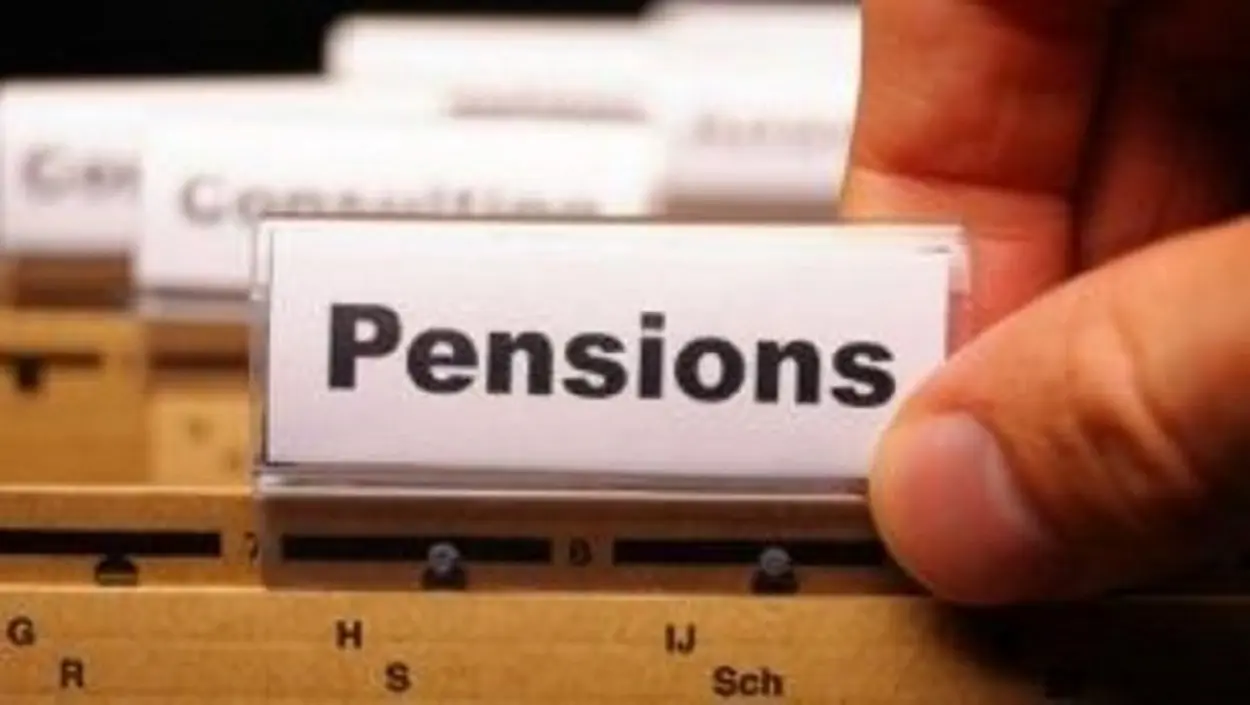
By Tony Obiechina, Abuja
The Federal Government has released funds for the disbursement of N5.12 billion in pension arrears to 90,689 Defined Benefit Scheme (DBS) pensioners under the Pension Transitional Arrangement Directorate.This was contained in a statement by the Head of Corporate Communications of PTAD, Olugbenga Ajayi.
He said that the directorate had finalised the disbursement of the money. The Nigeria Customs Service, the Nigeria Immigration Service, and Prisons Pension Department (CIPPD) pensioners are 8,626, received N276,032, for one-month arrears; the Police, Pension Department (PPD) pensioners are 9,681, received N619,584, for two months as arrears. The Civil Service Pension Department (CSPD) pensioners are 12,773, received N408,736, for one-month arrears, and the Parastatals Pension Department (PAPD) pensioners are 59,609, received N3,814,He said that the payment reaffirms the administration’s commitment to ensuring that pensioners receive their due entitlements in line with the Renewed Hope Agenda of President Bola TinubuAccording to the statement, the approvals align with the President’s Renewed Hope Agenda.“This move shows President Tinubu’s strong commitment to senior citizens’ welfare and marks a new era in DBS pension management,” said PTAD, Executive Secretary, Tolulope Odunaiya.Among the key measures is the immediate implementation of an extra budgetary allocation to enforce new pension rates for DBS pensioners.The President also endorsed the adoption of a proposed pension harmonisation policy, which will be incorporated into the 2026 pension budget. Additionally, health insurance coverage for all DBS pensioners has been approved, ensuring access to essential healthcare services.The proposed reforms include a new pension rate of N32,000 and incremental increases of 10.66% and 12.95% for pensioners from defunct and privatised agencies. Other components of the reform package include harmonisation of pension rates across all DBS pensioners and their enrolment into the National Health Insurance Scheme (NHIS).In June, PTAD announced the successful disbursement of N8.6 billion in pension arrears to 148,625 eligible DBS pensioners across various sectors. The payments reflect the implementation of the N32,000 pension increment approved by President Tinubu in 2024.PTAD had previously settled arrears related to the first pension increment of 20% to 28%, which came into effect in January 2024.COVER
NAF Offensive Decimates 592 Terrorists, Destroys 372 Assets in Eight Months

By David Torough, Abuja
The Nigerian Air Force (NAF) has killed no fewer than 592 terrorists and destroyed 372 enemy assets in Borno within the last eight months, surpassing the total operational gains recorded in 2024.A statement by NAF’s spokesman, Air Commodore Ehimen Ejodame yesterday said the Chief of the Air Staff (CAS), Air Marshal Hasan Abubakar, said this during a courtesy visit to Gov.
Babagana Zulum of Borno. Abubakar said the offensive had destroyed 206 technical vehicles and 166 logistics hubs in deep hostile territory, with coordinated day-and-night strikes from Gonori to Rann, Dikwa to Damboa, Azir to Mallam Fatori.He said the offensive had been boosted by the deployment of A-29 Super Tucano aircraft capable of precision and night missions, Mi-171 helicopters for medical evacuation and logistics, and enhanced intelligence, surveillance and reconnaissance platforms for round-the-clock target tracking.He added that a new Mi-35 gunship was expected to further intensify close-air support for ground troops in the theatre.“Backed by an upgraded fleet and precision night-strike capabilities, NAF aircraft executed 798 combat sorties, clocking over 1,500 operational flight hours in the Air Component of Operation Hadin Kai.“This year, our air war is faster, sharper, and more surgical.“We are taking out high-value targets, crippling their logistics, and hunting down every cell that threatens the peace of the North-East,” he said.The CAS also praised the “Borno Model” of combining community-driven non-kinetic measures with decisive military action, saying it had proven effective in the counter-insurgency campaign.He also inspected facilities at the NAF Base, met with aircrew and ground personnel, and received operational briefings.He reaffirmed the NAF’s commitment to precision air power, intelligence-led operations, and inter-agency collaboration to protect Nigerians.In his response, Gov. Zulum praised the NAF for its sustained air support in degrading terrorist capabilities and protecting communities.According to him, the NAF has been a steadfast partner in their fight against insurgency.“Your operations have saved countless lives and allowed our communities to begin rebuilding.“The people of Borno recognise your sacrifices and stand firmly behind you,” he said.COVER
Over 8,000 Mentally ill Inmates in Custody Nationwide, Says NCoS
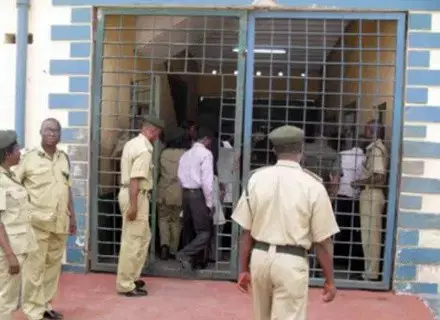
By Divine Ndukwe, Abuja
The Nigerian Correctional Service (NCoS) has disclosed that at least 8,246 inmates across the country’s custodial centres are living with mental health conditions.Assistant Controller General of Corrections in charge of Medical Services, Dr.
Glory Essien, revealed the figures yesterday in Abuja during the third public hearing of the Independent Investigative Panel on Alleged Corruption, Abuse of Power, Torture and Other Inhumane Treatment by the NCoS. Essien described incarceration as a deeply stressful experience, noting that the loss of freedom can trigger or worsen mental health conditions. She explained that inmate-leaders are trained to identify and report cases of psychological distress for early intervention, but available resources remain insufficient.“If you’re in a facility housing 500 to 1,000 inmates, with just one doctor or psychologist, monitoring everyone individually is impossible,” she said, citing logistical and funding challenges that hamper adequate care.Similarly, the NCoS Assistant Controller General in charge of Pharmaceutical Services, Mohammed Bashir, acknowledged that drug shortages and limited staffing remain major obstacles despite government funding.He revealed that a psychological services unit has been established, partnering with psychiatric associations to visit major facilities, though resources still fall short of demand.Permanent Secretary in the Ministry of Interior, Dr. Magdalene Ajani, called for urgent private sector support, stressing the need to deploy more psychiatric professionals to underserved states. “Please come to Macedonia and help us,” she appealed to the Nigerian Medical Association and pharmaceutical companies.Meanwhile, in Kwara State, the Nigerian Medical Association (NMA) has expressed alarm over rising mental health issues among doctors, linking the trend to burnout, workplace violence, and poor working conditions.Kwara NMA Chairman, Prof. Olushola Abdulrahman Afolabi, said a significant proportion of doctors experience depression, anxiety and other psychiatric disorders, often without seeking help due to stigma.Former NMA chairman, Prof. Issa Baba Awoye, warned that current figures could be worse than past studies, especially in resource-poor settings.The NMA is advocating for mandatory mental health evaluations for doctors, alongside increased awareness and stigma reduction campaigns. “Our healthcare system can only be as strong as the mental and physical well-being of those who sustain it,” Afolabi stated.Both the NCoS and NMA agree that mental health care must be prioritized, not just for inmates, but for those tasked with caring for the nation.
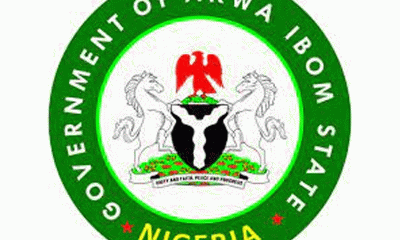







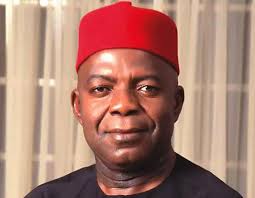


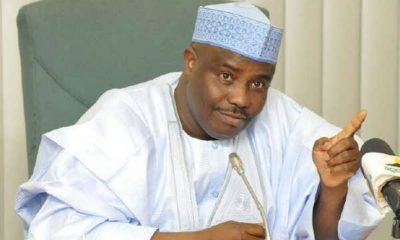







Pingback: NUJ Demands Immediate Reversal of Latest PMS Pump Price Daily Asset Online